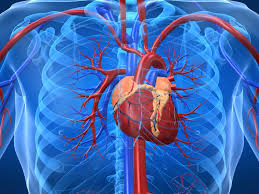
Diagnosed with Cancer? Your two greatest challenges are understanding cancer and understanding possible side effects from chemo and radiation. Knowledge is Power!
Learn about conventional, complementary, and integrative therapies.
Dealing with treatment side effects? Learn about evidence-based therapies to alleviate your symptoms.
Click the orange button to the right to learn more.
- You are here:
- Home »
- Blog »
- side effects ID and prevention »
- Cancer Survivors have Older Hearts :-(
Cancer Survivors have Older Hearts :-(

Cancer survivors (CS) have older hearts because most CS’s undergo chemotherapy. Chemotherapy that ages the person and ages the person’s heart. We all learn this in grade school but I’ll mention it again. The heart is a muscle- plain and simple. Toxicity can damage that muscle.
Let me be clear as to those chemotherapy regimens that can cause the most damage to a person’s heart. If you have already undergone one or more of the regimens below or if your oncologist has told you that you may be undergoing one of the therapies below, please read about possible therapies shown to reduce your accelerated aging.
- Anthracyclines
- 5-FU,
- Capecitabine
- Melphalan
- Cytoxan
- Busulphan
- paclitaxel,
- docetaxel,
- cabazitaxel
- Trastuzumab
- Pertuzumab
- Bevacizumab
- Sunitinib
- Sorafenib
- Nilotinib
- Dasatinib
- Imatinib
During a period of about 10 months- from March of 1995 to December of 1995, I underwent 4 of the chemo regimens on that list. I flipped into chronic atrial fibrillation (Afib) almost exactly 15 years later. The Afib was a result of the cardiotoxic regimens damaging the heart muscle.
As a result of my cardiotoxic chemo, I have developed all four of the heart damage listed below. When the article below says that chemo can age your heart, what the study is saying is that all or any of the four heart problems can occur.
- Chemotherapy-induced Cardiomyopathy-
- Chemotherapy-induce Atrial Fibrillation (Afib)-
- Chemotherapy-induced Hypertension-
- Chemotherapy-induced Heart Valve Damage-
My motto is that a blogger should never talk about a problem, especially one that results from cancer therapy, without presenting possible solutions.
The therapies listed below have not been approved by the Food and Drug Administration. I have learned, the hard way, that FDA approved heart meds do not heal the heart. Heart meds simply manage the symptoms.
According to regular echocardiograms, my evidence-based non-conventional therapies that are not FDA approved, have either stabilized or improved all major heart metrics- think ejection fraction, heart rate, blood pressure, etc.
The evidence-based but non-toxic therapies listed below can all help to heal heart problems. I began supplementing with each as I read about each in one or more studies. I tried to undergo a heart med called metoprolol, had a reaction and then decided to try to manage my heart health with evidence-based non-conventional therapies.
- CoQ10
- Omega-3 fatty acids
- Curcumin
- Vitamin D3
- Cocoa
- Carnitine
- L-Ribose
- nutriton-
- moderate exercise
I encourage you to work with a board-certified cardiologist. This will be important in the long run. I’m simply saying that there is much more to heart health, especially when it is caused by chemotherapy, than what is presented by conventional cardiology
Are you a cancer survivor? Have you every undergone one or more of the cardiotoxic regimens listed above? Have you developed heart damage?
Scroll down the page, post a comment or question and I will be reply to you ASAP.
Hang in there,
David Emerson
- Cancer Survivor
- Cancer Coach
- Director PeopleBeatingCancer
Predicted Heart Age Higher Among Cancer Survivors
“Excess heart age 8.5 years for men and 6.5 years for women; varies by age, race/ethnicity, education, income…
The excess heart age is more than five years higher among cancer survivors, according to research published in the Jan. 8 issue of the U.S. Centers for Disease Control and Prevention Morbidity and Mortality Weekly Report.
Lia C. Scott, Ph.D., from the CDC in Atlanta, and colleagues estimated predicted heart age (estimated from the 10-year risk for cardiovascular disease predicted by age, sex, diabetes status, smoking status, systolic blood pressure, hypertension treatment status, and body mass index), excess heart age (difference between predicted heart age and actual age), and racial/ethnic and sociodemographic disparities in predicted heart age among U.S. cancer survivors aged 30 to 74 years.
A total of 22,759 male and 46,294 female cancer survivors were included, with a mean age of 48.7 and 48.3 years, respectively. The researchers found that among cancer survivors, the predicted heart age and excess heart age were 57.2 and 8.5 years, respectively, for men, and 54.8 and 6.5 years, respectively, for women, with variation noted by age, race/ethnicity, education, and income….’
Predicted Heart Age Among Cancer Survivors — United States, 2013–2017
“Adult cancer survivors aged 30–74 years had higher predicted heart age than did noncancer participants, and the degree of excess heart age varied by racial/ethnic and sociodemographic groups.
Cancer survivors are living longer and are more likely to experience long-term side effects from therapy that require treatment from multiple types of physicians (5).
The management of cardiovascular complications and involvement of cardiologists in the integrated approach of cardio-oncology is becoming more important given the steady increase in cancer survival, and the literature suggests the use of a low threshold for referral to a cardio-oncologist or cardiologist (4,5).
The use of predicted heart age by physicians to encourage cancer survivors to improve modifiable risk factors and make heart-healthy choices, such as tobacco cessation, regular physical activity, and a healthy diet to maintain a healthy weight, can engage survivors in informed cancer care planning after diagnosis.
In addition, physicians can consider additional components and complications of cancer survivorship, such as mental, social, and financial issues, when formulating a survivorship plan.
Cancer survivors might experience numerous macro-level challenges and barriers, which can be included in future analyses to determine potential effect on heart age. By determining and communicating predicted heart age of cancer survivors at a personal level, cancer care teams can provide education to prevent long-term cardiovascular complications and improve quality of life and heart outcomes for cancer survivors.”
Cancer Treatment-Induced Accelerated Aging in Cancer Survivors: Biology and Assessment
“Summary- Many modalities used to treat or control cancer lead to accelerated aging in cancer survivors. However, the effects of cancer treatments on aging in individuals with cancer remain poorly studied. In this review, we summarize the possible biological mechanisms of accelerated aging in cancer survivors induced by cancer treatments. We also discuss the importance of estimating biological age in individuals with cancer and review the methods that can be used to estimate biological age in cancer survivors.



